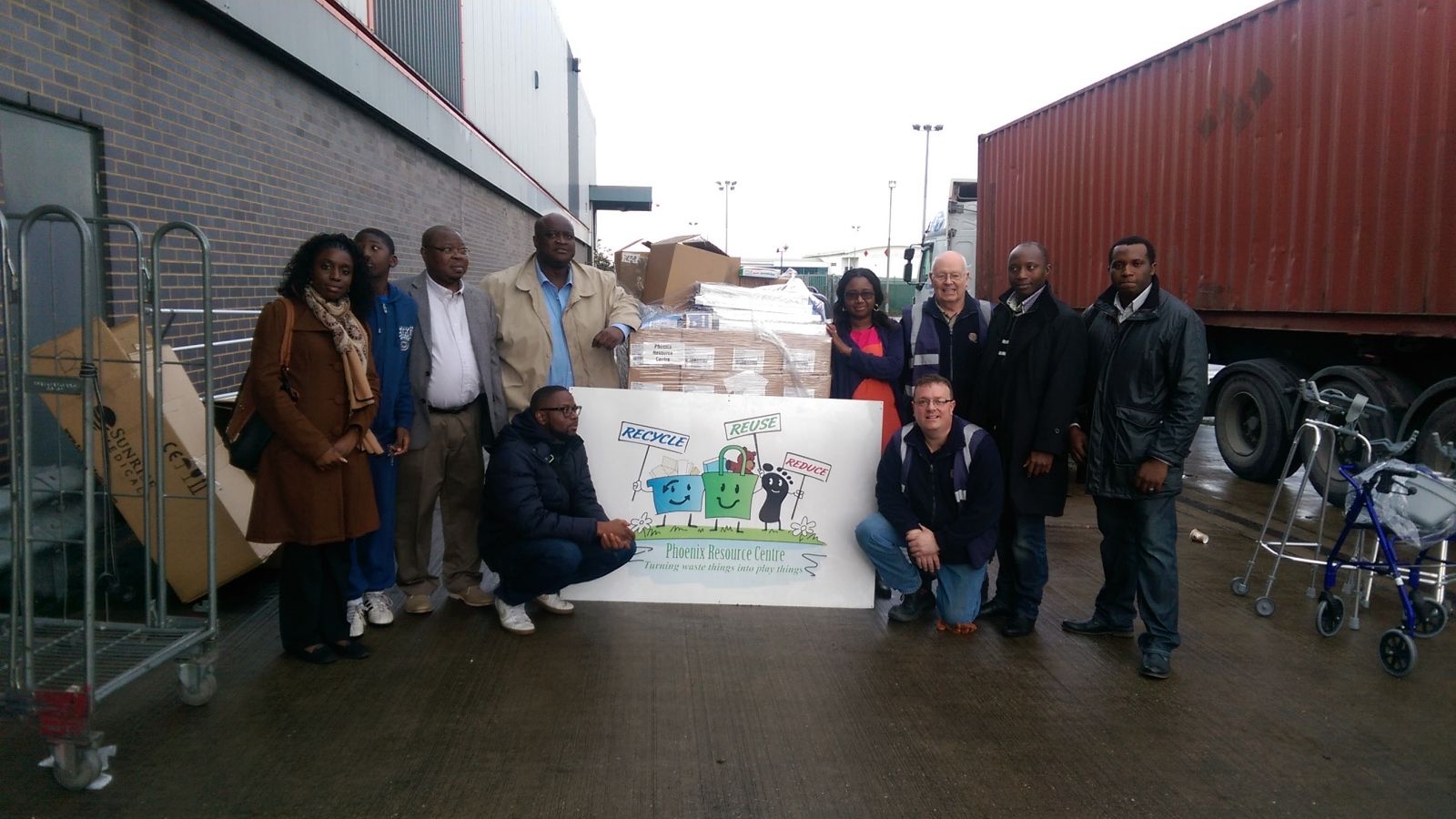This article was previously published on Ebola Deeply.
By Jon Gosier and Khadi Mansaray
It was 8:30 p.m. on a quiet evening in November 2014, and Ival Cummings-John had finally put her four-year-old daughter, Indira, to bed. But she wasn’t about to switch on the television, or to retire for the night. She was logging into a teleconference set up by the Sierra Leonean diaspora in London, designed to pool resources and fine-tune ideas to better respond to the Ebola outbreak.
Cummings-John wanted to get involved with the diaspora response effort for the sake of Indira, and other Sierra Leonean children like her, in the hope that their future might be built on stronger foundations and equipped with a health system that wouldn’t buckle under the strain of another Ebola outbreak.
There are about 144 million people from the African continent living outside of it, including a 72,000-strong Liberian diaspora in the U.S. and about 23,000 Sierra Leoneans in the U.K. With stronger professional – and often personal – ties to West Africa than many international organizations, the diaspora has rapid access to information, and a deep natural understanding of the nuances of the outbreak. So have they been under-utilized by international organizations in the fight against Ebola?
Yes, said many of the attendees of the recent “Ebola Outbreak: Challenges and Next Steps for the Future” Global Health Forum held at the Milken Institute School of Public Health in Washington, D.C.
“If [the diaspora] is marginalized, we cannot contribute here or back home,” said Sylvie Bello of the Cameroon American Council. Many of Bello’s colleagues and friends have been coordinating efforts to respond to the Ebola outbreak through donations and remittances.

Bello challenged the speakers present to explain how their organizations can better utilize the knowledge, skills, and experience of the West African diaspora. She wants to see more stories that highlight the contributions of her peers, because the stories of Africa’s contribution to the Ebola response rarely make the front pages.
Chukwu-Emeka Chikezie, a Sierra Leonean living in London, co-founded an equipment and supplies pillar that sent a large volume of medical provisions to Sierra Leone, raising £45,000 to cover the shipping costs. The pillar forged a partnership with the Phoenix Resource Centre, an environmental organization that distributes surplus stock from corporations to non-profit causes.
“The entire outbreak has been characterized by frequent shifts in priorities and needs, and as a diaspora support group focused on the Ebola response, we've constantly sought to adapt to the changing context and needs,” Chikezie said. “We consulted with the chief medical officer of Sierra Leone and the director of the National Ebola Response Center (NERC), so we were able to obtain the priority list of the government of Sierra Leone.”
Juanita Rilling, director of the Center for International Disaster Information (CIDI), said the diaspora responded to the Ebola outbreak well before most international organizations.
“It wasn’t until August 4, 2014 that the outbreak was officially declared an emergency [by the international community],” Rilling told Ebola Deeply. “But all through April, May, and June last year, members of the Sierra Leonean, Liberian, and Guinean diasporas were calling us looking for ways to help. In fact, it was their early reports that helped direct our attention.”
An increasing number of African philanthropists are pumping funds back into the continent, and many have responded to the Ebola outbreak. An Ebola response event spearheaded by the African Union Commission chair, Dr. Nkosazana Dlamini Zuma, in November brought together a number of prominent African business leaders who have made substantial capital contributions. They included Strive Masiyiwa of Econet Wireless Global, Patrice Motsepe of African Rainbow Minerals Limited (ARM), and Dr. Donald Kaberuka, president of the African Development Bank (AfDB).
A big change, then, from the tired narrative that Africa is too dependent upon foreign governments. Africa Responds describes itself as a collaborative platform through which African organizations and allies can pool their resources, networks, and collective voices to react to the Ebola outbreak.
“I want to challenge Africans and friends of Africa to step up to the plate. I find our role as Africans in this response extremely important,” wrote Teddy Ruge, co-founder of Africa Responds, in a blog post.
“We cannot forget that, while supportive, it is ultimately not the Centers for Disease Control and Prevention (CDC) or experimental drug companies that will overcome the disease,” Ruge said. “We, as Africans, have to break the mentality that responding to crises on our continent is the mandate of the international community.”
*****
*****
Jon Gosier is the founder of Appfrica, a technology company that supports NGOs and multinational companies doing work across Africa. He is also a member of the Ebola Deeply founding team.
Khadi Mansaray is a Sierra Leonean writer, business analyst and radio broadcaster who lives in London.
[Photos coutesy of Ebola Deeply and RCP]
